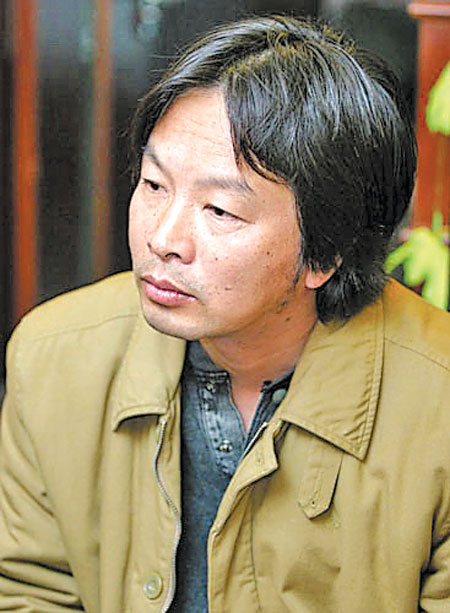
 'Taken 2' grabs movie box office crown
'Taken 2' grabs movie box office crown
 Rihanna's 'Diamonds' tops UK pop chart
Rihanna's 'Diamonds' tops UK pop chart
 Fans get look at vintage Rolling Stones
Fans get look at vintage Rolling Stones
 Celebrities attend Power of Women event
Celebrities attend Power of Women event
 Ang Lee breaks 'every rule' to make unlikely new Life of Pi film
Ang Lee breaks 'every rule' to make unlikely new Life of Pi film
 Rihanna almost thrown out of nightclub
Rihanna almost thrown out of nightclub
 'Dark Knight' wins weekend box office
'Dark Knight' wins weekend box office
 'Total Recall' stars gather in Beverly Hills
'Total Recall' stars gather in Beverly Hills
Henan has the write stuff
Updated: 2012-09-18 10:30
By Yang Guang (China Daiy)
|
||||||||
More than 30 writers from Henan province convened in Beijing in early September for the Beijing International Book Fair. During the five-day book event, they launched their new books, attended seminars and talked to readers.
Literary critic Meng Fanhua says compared with their counterparts in other areas, Henan writers are more closely concerned with the profound transformation of our social lives.
Literary critic Yan Jingming agrees, adding that Henan writers live in the most "Chinese" areas, lead the most "Chinese" life, speak the most "Chinese" language and write with the most "Chinese" characteristics.
Here are some of the representatives of the school:
Zhou Daxin
Born in 1952, in Dengzhou, Henan province, Zhou joined the army in 1970 and started publishing in 1982. He won the prestigious Mao Dun Literature Prize in 2008 with novel View of the Lake and Hill, about how rural girl Nuannuan struggles against all odds to pursue a better life.
His novella The Fragrant Oil Mill by the Lake of Scented Souls, about a woman who runs a small sesame oil mill buying a farmer bride for her mentally retarded son, was adapted into a film and won the Golden Bear for Best Film at the 1993 Berlin International Film Festival.
Li Peifu
Born in 1953 in Xuchang, Henan province, Li is good at dissecting the psychology of contemporary Chinese farmers and portraying their living conditions.
His most recent novel, Book of Life, portrays China's half-century transformation through orphan Wu Zhipeng's escape from the poverty of his native village in Henan province. It is also the finale of his "plains trilogy", after the 1999 Gate of the Sheep and the 2003 Light of the City.
Liu Zhenyun

Born in 1958 in Yanjin, Henan province, Liu joined the army at 15, and was enrolled to study Chinese at Peking University in 1978. He obtained fame by Chicken Feathers Everywhere, a novel about how civil servant Xiao Lin comes to terms with the boring and messy mundane situations of life.
Many of his works have been adapted into popular films and TV series. He won the Mao Dun Literature Prize in 2011 with novel One Sentence Is Worth Thousands, about one man's search for someone to talk to.
His most recent work is the novel I'm Not Pan Jinlian, which tracks the two decades of efforts by Li Xuelian to challenge an unfair ruling that accused her of cheating on her husband and ended her marriage.
Most Viewed
Editor's Picks

|

|

|

|

|

|
Today's Top News
Health new priority for quake zone
Xi meets US top military officer
Japan's boats driven out of Diaoyu
China mulls online shopping legislation
Bird flu death toll rises to 22
Putin appoints new ambassador to China
Japanese ships blocked from Diaoyu Islands
Inspired by Guan, more Chinese pick up golf
US Weekly

|

|






